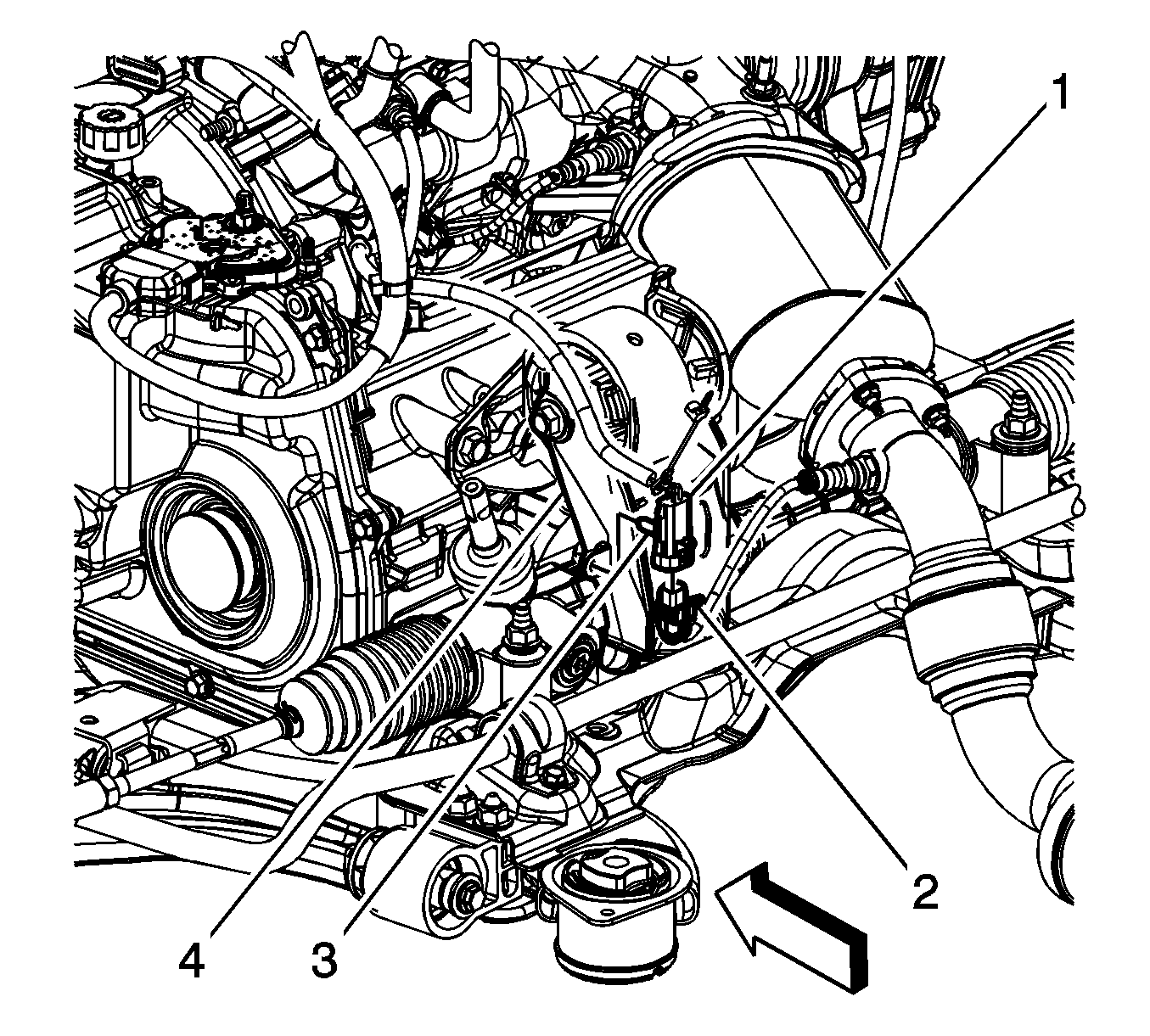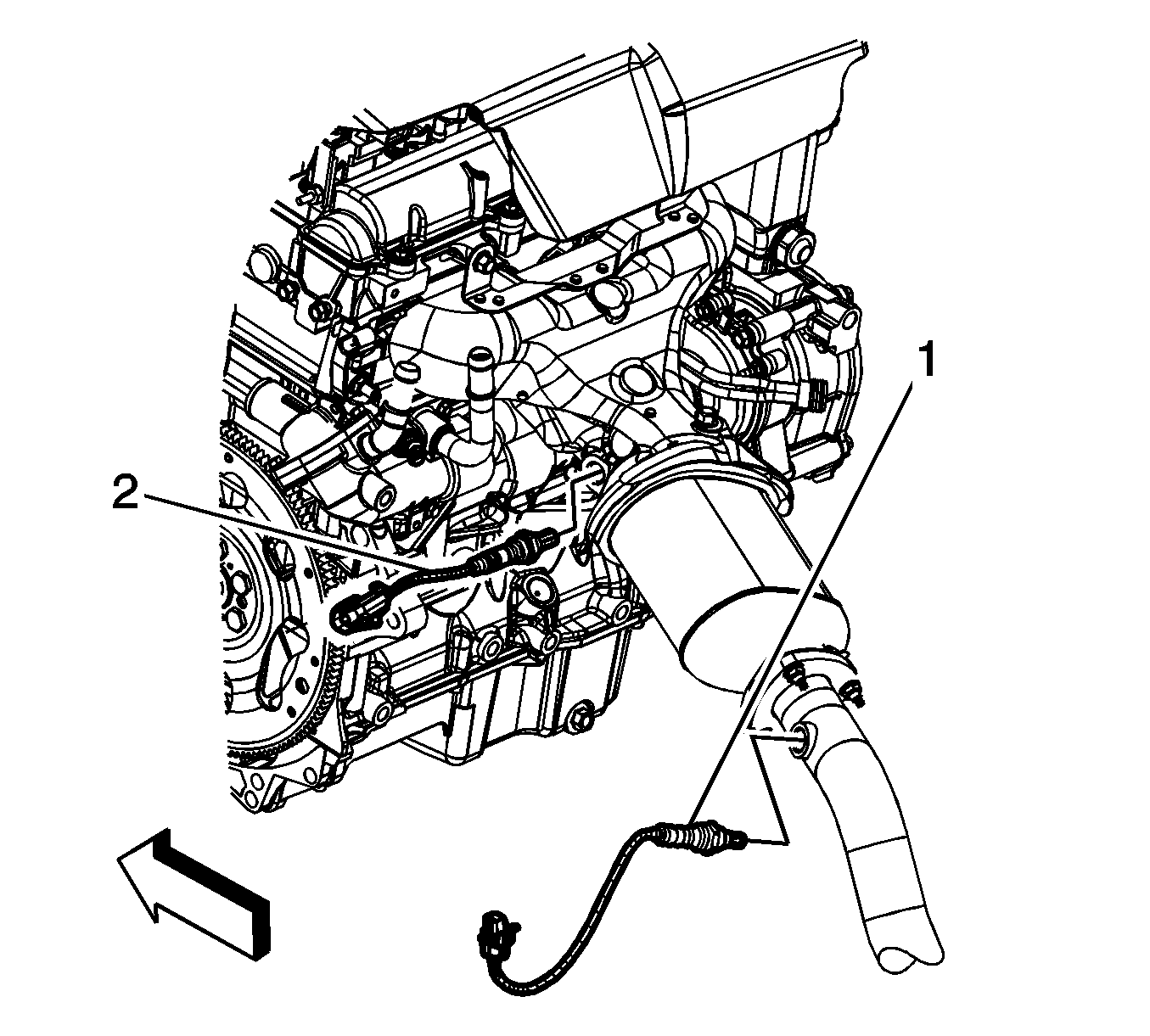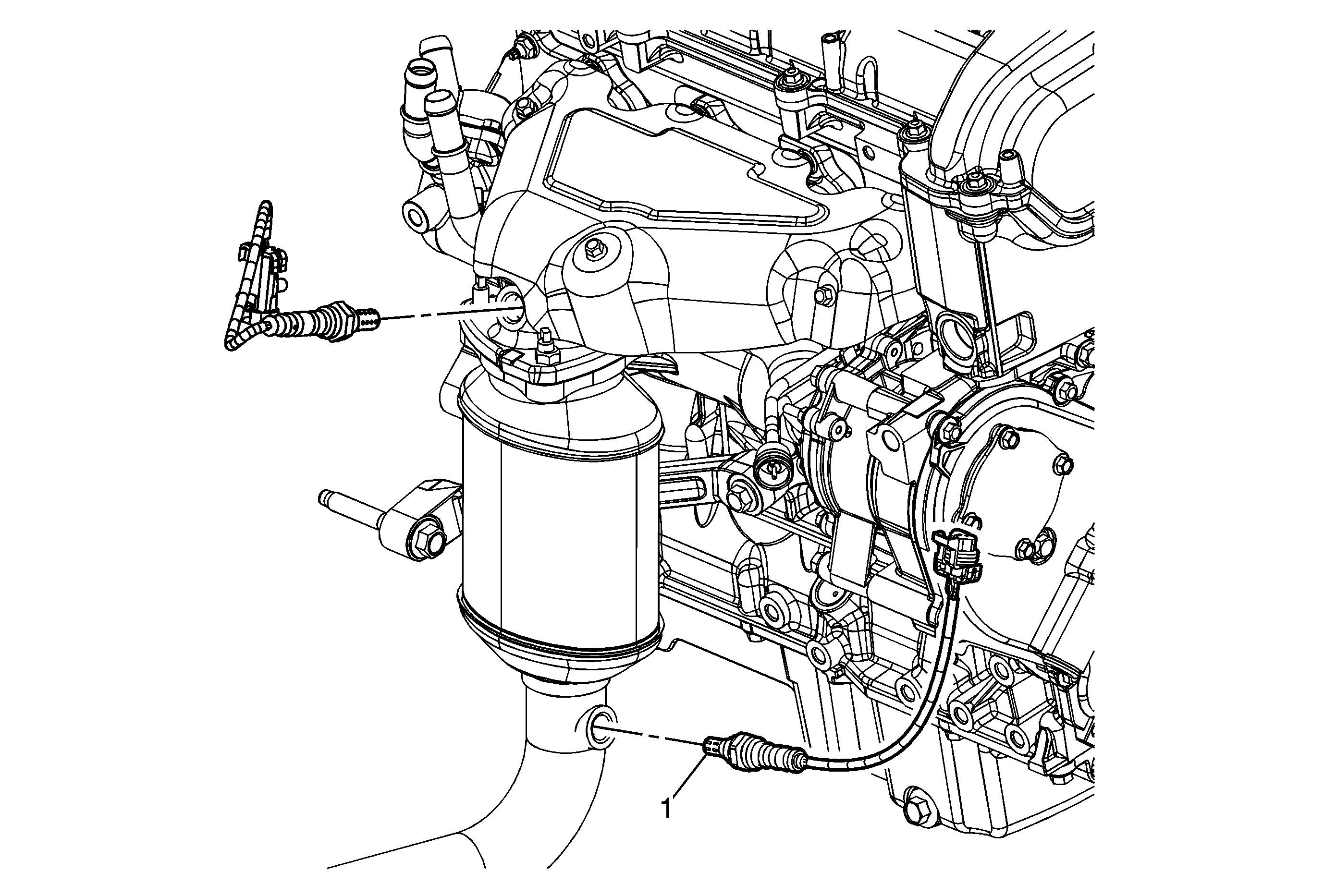Heated Oxygen Sensor Replacement - Sensor 2 LAT and LE5
Special Tools
J 39194-C Oxygen Sensor Wrench
Removal Procedure
Caution: The oxygen sensor uses a permanently attached pigtail and connector. Do not remove the pigtail from the oxygen sensor. Damage to or removal of the pigtail connector could affect proper operation of the oxygen sensor.
Caution: The use of excessive force may damage the threads in the exhaust manifold/pipe.
Note:
• The in-line connector and louvered end must be kept clear of grease, dirt or other contaminants. Avoid using cleaning solvents of any type. DO NOT drop or roughly handle the heated oxygen sensor (HO2S). • The HO2S may be difficult to remove when the engine temperature is less than 48°C (120°F).
- Raise and suitably support the vehicle. Refer to Lifting and Jacking the Vehicle.
- Remove the connector position assurance (CPA) retainer.
- Disconnect the HO2S electrical connector (2) from the engine wiring harness electrical connector (1).
- Remove the HO2S (1), if necessary use the J 39194 .


Installation Procedure
Note: A special anti-seize compound is used on the heated oxygen sensor threads. The compound consists of a liquid graphite and glass beads. The graphite will burn away, but the glass beads will remain, making the sensor easier to remove. New or service replacement sensors will have the compound applied to the threads. If a sensor is removed and is to be reinstalled, the threads must have an anti-seize compound applied prior to installation.
- If necessary, coat the threads of the HO2S with anti-seize compound GM P/N 12377953 or equivalent.
- Install the HO2S (1), if necessary use the J 39194-C .
- Connect the HO2S electrical connector (2) to the engine wiring harness electrical connector (1).
- Install the CPA retainer.
- Lower the vehicle.

Caution: Refer to Fastener Caution in the Preface section.
Tighten
Tighten the sensor to 42 N·m (31 lb ft).

Heated Oxygen Sensor Replacement - Sensor 2 LE5 w/MH5

Callout | Component Name | ||||||
|---|---|---|---|---|---|---|---|
Preliminary ProcedureRaise and support the vehicle. Refer to Lifting and Jacking the Vehicle. | |||||||
1 | Heated Oxygen Sensor Caution: The oxygen sensor uses a permanently attached pigtail and connector. Do not remove the pigtail from the oxygen sensor. Damage to or removal of the pigtail connector could affect proper operation of the oxygen sensor. Caution: The use of excessive force may damage the threads in the exhaust manifold/pipe. Caution: Refer to Heated Oxygen Sensor Resistance Learn Reset Caution in the Preface section. Caution: Refer to Fastener Caution in the Preface section. ProcedureDisconnect the electrical connector. Tip
Tighten Special ToolsJ 39194 Oxygen Sensor Wrench | ||||||
